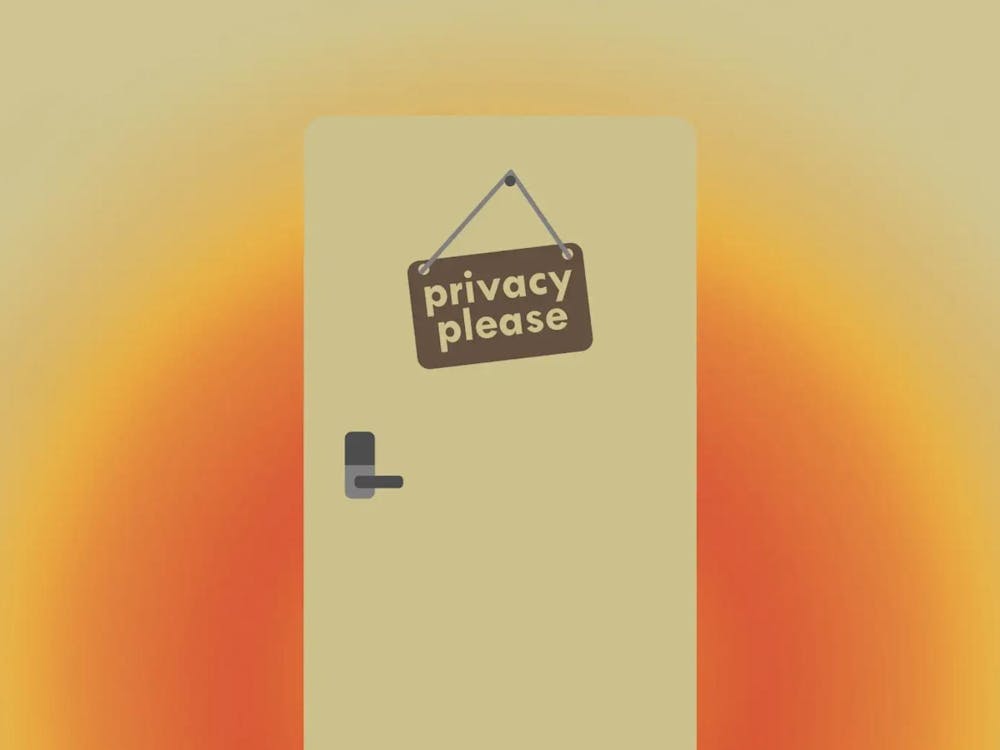When fourth-year College student Bryson Patterson was young, doctors told his parents they would be lucky if their son finished high school.
Patterson's dyslexia causes him to mix up numbers and letters; as a result, he didn't learn to read until the third grade.
First-year College student Rebecca Smith was born profoundly deaf. Although hearing aids let her recognize sounds such as cars, music and voices, they seem distorted and unclear.
Despite the differing needs of these two individuals, the University has been successful in facilitating specifically tailored aid to them, and countless others, through the Learning Needs and Evaluation Center.
Founded in 1979 by Eleanor Westhead, LNEC is committed to helping students with learning disabilities, medical conditions and mobility impairments, as well as the Deaf and blind.
Some of its services include peer note-takers, books on tape, extended time and scribing for exams, use of special computer equipment, interpreting, adapted transportation and coordination with the Housing Division for accessibility.
Patterson said she relies heavily on Recording for the Blind and Dyslexic, an international program that records books, ranging from children's to nonfiction to textbooks, on tape. Patterson acknowledges, however, that it would be impossible for the service to record many of the higher level college textbooks used at the University.
So LNEC Reading Program Coordinator Genevieve Grosbaum recruits reading volunteers to aid students like Patterson. Once Patterson determines the specific textbooks needed, one of Grosbaum's student volunteers records the book for Patterson's use.
"Without services like this I don't think I would be able to attend the University," he said.
Through LNEC, Patterson also was offered note-taking services and double time for exams, both of which he chose to forgo.
Smith's needs, although entirely different than Patterson's, also are being met by the LNEC. Her room is equipped with a flashing doorbell and alarm clock, as well as a teletype (TTY) phone. This device, consisting of a keyboard and screen, enables Smith to type back and forth to others.
"If I want to talk to hearing friends I have to call the Relay and get an operator who reads what I type to my friend and types to me what my friend says," Smith said.
In addition, Smith is provided with a sign language interpreter and a note taker for each of her classes. For important meetings, Smith needs to notify LNEC in advance so it can provide her with an interpreter.
So far, Smith said she feels LNEC has helped her adapt to life at the University.
"Since the LNEC has been very helpful in getting the services that I need, I have been able to be a normal student at U.Va. regardless of my deafness," she said.
And Smith is not the only one. LNEC Assistant Director Jennifer Maedgen said at any given time, LNEC may have between 400 and 500 active files running, the majority of which involve some sort of learning disability.
Maedgen said two types of students seek LNEC aid: those with previously diagnosed needs and those who, because of increasing difficulty throughout the year, seek preliminary diagnosis through LNEC.
She said throughout the school year, 100 or so students may undergo a preliminary screening at the Center, which tells them whether they should undergo a more extensive evaluation which LNEC does not offer, and thus is a cost to the student.
She added that of the newcomers to LNEC, about 40 percent end up being diagnosed with some sort of disability or need.
Smith said applying for LNEC aid was simple; she had to provide medical records documenting her hearing loss.
But Patterson said his process was "quite an ordeal," due to the fact that he had to undergo recertification, a process required every three years for those with dyslexia. He also had to obtain a language waiver, allowing him to substitute a foreign culture class for the language requirement. That process required an initial trial of Spanish classes and meetings with the dean, the head of the language department and his language teacher.
Patterson acknowledges, however, the need for extensive evaluations and consultations.
"It's quite a process. I guess because they're afraid of abuse" of waivers and other such special accommodations, he said.
Despite the initial red tape, Patterson said he has only positive memories of his experience with LNEC.
"They make a huge effort to really be friendly with everybody. They remember your name," he said.
He also praised the Center's efforts to maintain confidentiality and discretion.
"Most of my professors would probably be surprised" to learn I have a disability, he added.
The overreaching goal of the LNEC is "to level the playing field" for students with special needs and disabilities, Maedgen said.
"It used to be students with disabilities didn't go to college," she said. But this statistic "has reached a much higher proportion in the last 10 years."
The University's admissions policy does not take disability into account. Maedgen said because of this, disabled students who are accepted depend on LNEC's services once they arrive at the University.
"Some people do not understand that Deaf people, and people with disabilities, are normal people, but with a few special needs," Smith said.
Although Maedgen acknowledges that "by no means do accommodations guarantee success," LNEC certainly provides the means for University students such as Patterson and Smith to fulfill their full potential.
"The people in the LNEC have been working very hard to ensure that people get the services that they need and they deserve recognition for that," Smith said.




